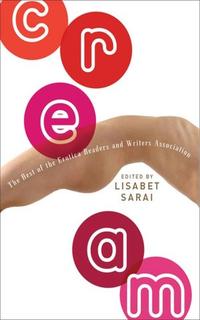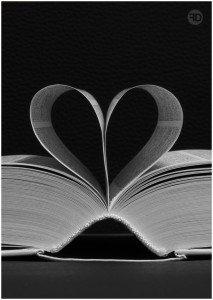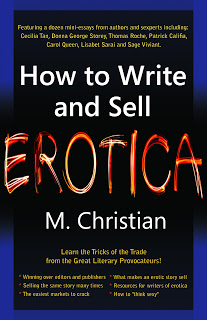By K D Grace
I had a sex blogger ask me once how I could possibly write
about things I hadn’t experienced. My answer at the time, though accurate, was
a bit flippant I suppose. I said that it’s fiction. It’s no more difficult for
me to write about sex that I’ve not experienced than it is for Thomas Harris to
write about serial killers when he certainly isn’t one.
I think I can write about sex I’ve never experienced, would
never even want to experience in the real world because I have a big brain. Oh,
not my brain in particular. All humans have ‘em, and we use them in sex even
when we’re not having sex. The thing about having a big brain is that it adds a
new dimension to a biological act. In the hormonal, pheromonal soup that drives
us to fuck, we get the added pleasure of making it up as we go along. In our
heads — anyway we like it. And this, we can do completely and totally without
the help of anyone else.
Which leads me to wonder how much of fiction writing – any
genre of fiction writing – is really our big brain masturbating – first for our
own pleasure, and if we get lucky and our work gets published, then we get to
be exhibitionists and do it for an audience. Is that yet another layer of our
sexuality? There’ve been countless of books and essays written on the
connection between sexuality and creativity, and I’ve experienced it myself.
When it’s right, when I’m in the zone, the rush, the high, the incredible buzz
of getting characters and plot to move together in just the right tango of conflict
and passion and drive, the experience from a writer’s point of view is
extremely sexual, and yet somehow better than sex. It’s sex on steroids, it’s
free-falling, it’s roller coaster riding, it’s fast cars, mountain tops and
touching the tiger all rolled into one. And it all happens in some nebulous
part of our brains that only a neurosurgeon might be able to pin-point for us.
And who cares? Who cares as long as it gets us there!
Those moments don’t happen often, but it doesn’t matter.
They happen often enough to push us forward, to keep us going and writing and
longing and digging deep for the next wild brain-gasm. I just came off of one
of those experiences while racing to finish the draft of The Exhibition. It was a late-night write, a dark, dangerous sex
scene in which the characters staged a coup and completely took control of the
action. I came away staggering, looking down at my hands, wondering how the
hell I wrote that. I was too hyped to sleep, too creeped out to think about who
might be waiting for me in my dreams after what I’d just written. And yet … And
yet I felt stretched, expanded, like for a second I’d seen sex at the core
where the dark and light meet and swallow each other up. And what’s left is a
wild, crazy pull to translate what just happened into some kind of written
account that will convey that feeling, that sense of being beyond myself, yet
deeper into the dark recess of myself than I felt really comfortable going. And
as any writer would, longing to drag my reader right in there with me, into the
dark, into the fire.
It was a long time before I could sleep. It was a long time
before I felt quite like myself again. And that’s what got me thinking about my
big brain, which at times, seems so much bigger than just the space in my head.
And I guess maybe I do have to experience something in order to write about it.
But the big brain creates that experience in the privacy of my own head. That
being the case, how could I not keep going back for more? How could I not want
desperately to write what my big brain allows me to experience? How could I not
want to bring it out and flaunt it for the reader’s full participation?






